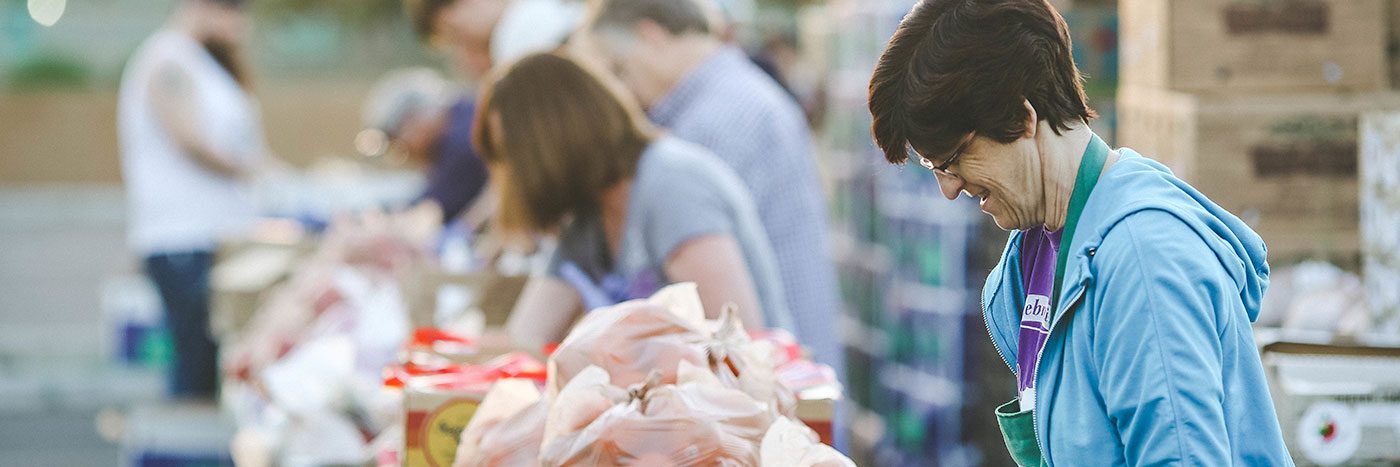“My lack of proximity to suffering is what marks me as different –
the outlier in a world full of horror.” – D. L. Mayfield
On August 25, Hurricane Harvey made landfall in Texas. Alongside the rest of America, I turned to news reports and social media to follow the storm as it angrily made its way across Southeast Texas. I felt empathy for the misfortunate of my fellow Texans whose lives and livelihoods were devastated by the storm. But then, the dynamic between the storm and me changed: Harvey had now come for my Houston suburb. It was our turn, and there was nothing we could do about it. We were no longer observing Harvey as outsiders; we were in the middle of it. In that instant, our empathy for the hurricane’s victims was transformed into sympathy.
The word sympathy combines the Greek prefix sym (together) with the Greek word pathos (emotion) to create a word that describes the experience of feeling what another person is going through. In my experience, and particularly during Hurricane Harvey, the shared experience of and proximity to suffering humanizes people – it causes me to see them as individuals I can relate to.
These neighbors of mine are the same humans who’ve caused me inconveniences while driving (and vice versa), or whose overgrown lawns have been an eyesore (and vice versa). And whereas before I might have been quick to subconsciously label them as annoying drivers or bad lawn-maintainers, sharing in a catastrophe with these friends and strangers somehow humanized them like never before. Brené Brown captured this phenomenon when she stated simply: “People are hard to hate close up.” Proximity to the suffering of my neighbor, you could say, helped bring my neighbor into focus.
My sympathy, of course, isn’t what legitimizes the suffering of another. Suffering is suffering even when no one but God knows what one of our fellow humans is experiencing. What sympathy, or sharing the burden of suffering, does do is spur us to act. During Hurricane Harvey, those who were spared by the flood were compelled by a force almost outside of their control to walk out their front doors and help their suffering neighbors in any way they could. The thought of staying home and leaving our flooded neighbors alone in their time of need was appalling. We were empowered by the fact that we could see the crisis they were facing, and we were ready to do everything in our power to mitigate their suffering.
How often can we say the same thing about human suffering in general? How often do we or our neighbors suffer in silence – constrained by shame, fear, oppression, or not knowing how to articulate the nature of their suffering and need? Typically, natural disasters leave very clear needs in their wake: homes have been destroyed and must be rebuilt, physical injuries have been sustained, businesses have become inoperable. This is not the case for so much of the crisis and suffering that surrounds us at Human Coalition day in and day out.
There is a people group whose number dwarfs the number of natural disaster victims, yet they receive virtually no media coverage and little action-driving sympathy from their neighbors. That group is the 1.2 million women who actively seek an abortion every year in the United States, and their preborn children are oftentimes days away from death. Most of these pregnant women find themselves in relational and/or financial crises, and many face coercive forces that influence their own free will in the decision-making process. They are suffering. Yet, the only widespread, readily available answer they find when seeking help is abortion. Instead of hope and tangible help, an industry peddling procedures of fatal violence utterly pervades this market of suffering women searching desperately for help.
Abortion-seeking women are overwhelmed by panic, fear, and stress. Lacking the unwavering support of even one loved one or the financial stability to care for another dependent, an abortion is less an empowering expression of self-determination, than it is a desperate act of self-preservation. This is a time when a loved one is needed to foster the calm headspace necessary to make life-or-death decisions. Yet, too often a pregnant woman will walk the journey from positive pregnancy test to completed abortion alone, without another human being extending the compassionate hand of sympathy or care. And afterward, she will carry on with her life alone, still weighed down by all the suffering that brought her to the abortion industry in the first place.
America has the manpower and resources to help these women and rescue their children. We simply have to shift the dynamic between ourselves and the abortion-seeking woman, in order to create the human connection needed to spur action on behalf of the suffering. Those of us who are working to end abortion in America succeed when we identify and address the suffering that drives each abortion decision… when we fearlessly allow ourselves to be compelled by that inexplicable force that sends us out our front door on a mission to serve our neighbor.
No individual pro-lifer has to serve all 1.2 million suffering women each year. But every pro-life advocate can do something to be a part of the change. Will you step forward and enter into a woman’s suffering with her?

Yes, I have been in training for a while at a crisis pregnancy care center in my local community. On TU I will meet my first young mother-client and begin, with the help of the Holy Spirit, to enter into her world to be a support for her at this… Read more »
Wow…this is so eye-opening! I never stopped to look at it from this perspective, the suffering and loneliness that leads a woman to have an abortion. Thank you so much for providing this insight and making us conscience of their suffering.